Filter by
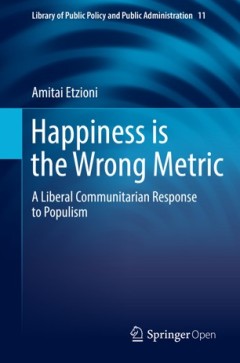
Happiness is the wrong metric : a liberal communitarian response to populism
This timely book addresses the conflict between globalism and nationalism. It provides a liberal communitarian response to the rise of populism occurring in many democracies. The book highlights the role of communities next to that of the state and the market. It spells out the policy implications of liberal communitarianism for privacy, freedom of the press, and much else. In a persuasive arg…
- Edition
- -
- ISBN/ISSN
- 9783319696232
- Collation
- xxi, 304p. : ill.
- Series Title
- -
- Call Number
- 320.01 ETZ h
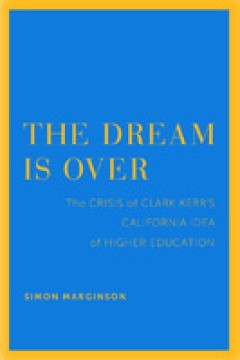
The dream is over : the crisis of Clark Kerr's California idea of higher educ…
The Dream Is Over tells the extraordinary story of the 1960 Master Plan for Higher Education in California, created by visionary University of California President Clark Kerr and his contemporaries. The Master Plan’s equality of opportunity policy brought college within reach of millions of American families for the first time and fashioned the world’s leading system of public research univ…
- Edition
- -
- ISBN/ISSN
- 9780520966208
- Collation
- XIV, 243 p.
- Series Title
- -
- Call Number
- 378.794 MAR d
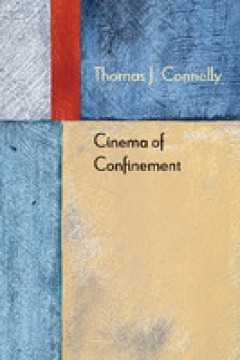
Cinema of confinement
In this book, Thomas J. Connelly draws on a number of key psychoanalytic concepts from the works of Jacques Lacan, Slavoj Žižek, Joan Copjec, Michel Chion, and Todd McGowan to identify and describe a genre of cinema characterized by spatial confinement. Examining classic films such as Alfred Hitchcock's Rope and Stanley Kubrick's The Shining, as well as current films such as Room, Green Room,…
- Edition
- -
- ISBN/ISSN
- 9780810139237
- Collation
- X, 179 p.
- Series Title
- -
- Call Number
- 791.43653 CON c
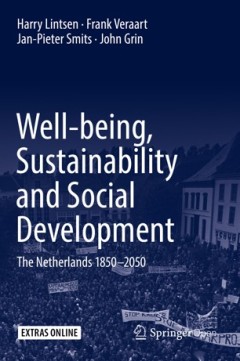
Well-being, Sustainability and Social Development : The Netherlands 1850–2050
This open access book examines more than two centuries of societal development using novel historical and statistical approaches. It applies the well-being monitor developed by Statistics Netherlands that has been endorsed by a significant part of the international, statistical community. It features The Netherlands as a case study, which is an especially interesting example; although it wa…
- Edition
- -
- ISBN/ISSN
- 9783319766966
- Collation
- xxxii, 572p. : ill.
- Series Title
- -
- Call Number
- 113 WEL w
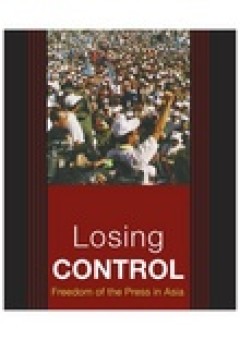
Losing control: freedom of the press in Asia
A free press is not a luxury. A free press is at the absolute core of equitable development' according to World Bank President James Wolfensohn. A free press is also the key to transparency and good governance and is an indispensable feature of a democracy. So how does Asia rate? In Losing Control, leading journalists analyse the state of play in all the countries of North Asia and Southeast As…
- Edition
- -
- ISBN/ISSN
- 9781925021431
- Collation
- 282 p.; 22 cm.
- Series Title
- -
- Call Number
- 323.445095 WIl l
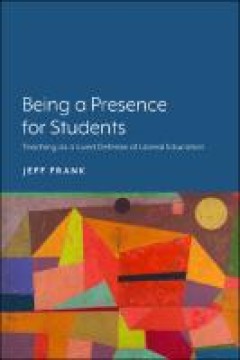
Being a presence for students : teaching as a lived defense of liberal education
This book offers a lived defense of liberal education. How does a college professor, on a daily basis, help students feel the value of liberal education and get the most from that education? We answer this question, as professors, each day in the classroom. John William Miller, a philosophy professor at Williams College from 1924-1960 and someone noted for his exceptional teaching, developed on…
- Edition
- -
- ISBN/ISSN
- 9781643150086
- Collation
- VIII, 135 p.
- Series Title
- -
- Call Number
- 370.112 FRA b
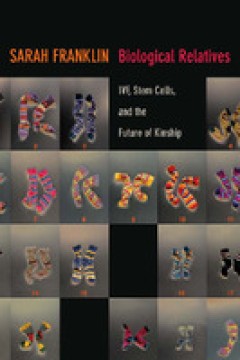
Biological relatives : IVF, stem cells and the future of kinship
Thirty-five years after its initial success as a form of technologically assisted human reproduction, and five million miracle babies later, in vitro fertilization (IVF) has become a routine procedure worldwide. In Biological Relatives, Sarah Franklin explores how the normalization of IVF has changed how both technology and biology are understood. Drawing on anthropology, feminist theory, and s…
- Edition
- -
- ISBN/ISSN
- 9780822354994
- Collation
- X, 364 p.
- Series Title
- Experimental Futures,
- Call Number
- 618.1780599 FRA b
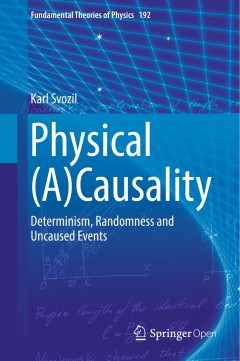
Physical (A)Causality : determinism, randomness and uncaused events
This book addresses the physical phenomenon of events that seem to occur spontaneously and without any known cause. These are to be contrasted with events that happen in a (pre-)determined, predictable, lawful, and causal way. All our knowledge is based on self-reflexive theorizing, as well as on operational means of empirical perception. Some of the questions that arise are the following: a…
- Edition
- -
- ISBN/ISSN
- 9783319708157
- Collation
- xiv, 219p. : ill.
- Series Title
- -
- Call Number
- 530.01 SVO p
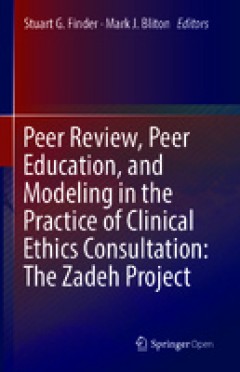
Peer review, peer education, and modeling in the practice of clinical ethics …
This open access book about the Zadeh Project demonstrates and explores a core question in clinical ethics: how can ethics consultants be accountable in the face of a robust plurality of ethical standpoints, especially those that underwrite practices and methods for doing ethics consultation as well as those viewpoints and values encountered in daily clinical ethics practice? Underscoring this …
- Edition
- -
- ISBN/ISSN
- 9783319909554
- Collation
- viii, 228p.
- Series Title
- -
- Call Number
- 174.2
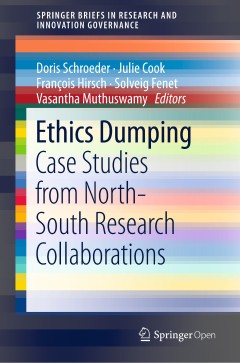
Ethics dumping : case studies from north-south research collaborations
This book provides original, up-to-date case studies of “ethics dumping” that were largely facilitated by loopholes in the ethics governance of low and middle-income countries. It is instructive even to experienced researchers since it provides a voice to vulnerable populations from the forementioned countries. Ensuring the ethical conduct of North-South collaborations in research is a proc…
- Edition
- -
- ISBN/ISSN
- 9783319647319
- Collation
- xiii, 134p. : ill.
- Series Title
- -
- Call Number
- 174.9 ETH e
 Computer Science, Information & General Works
Computer Science, Information & General Works  Philosophy & Psychology
Philosophy & Psychology  Religion
Religion  Social Sciences
Social Sciences  Language
Language  Pure Science
Pure Science  Applied Sciences
Applied Sciences  Art & Recreation
Art & Recreation  Literature
Literature  History & Geography
History & Geography